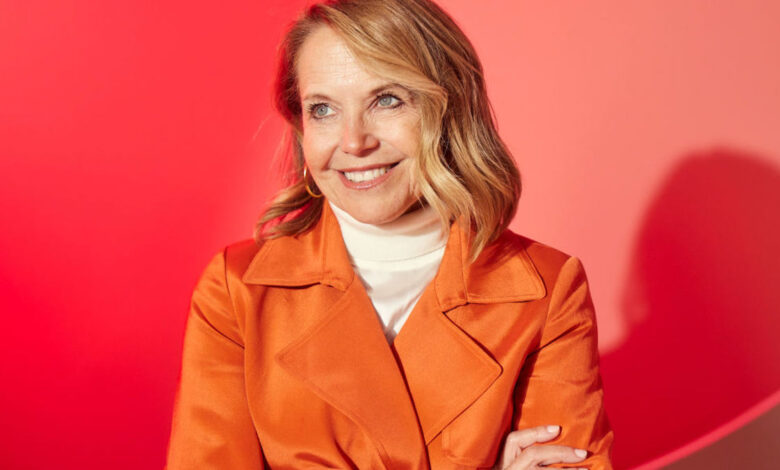Katie Couric on the National Senior Games 2023

Call them inspiring. Call them fierce. Call them powerful. Just please, don’t call them “cute,” says Katie Couric, the legendary journalist who this year is acting as a spokesperson for the games, commonly known as the “Senior Olympics.”
For Couric, sharing the stories of these top-tier athletes isn’t just about the thrill of the competition (which is thrilling indeed—clips from the event often go viral). It’s about busting myths about what older people are and aren’t supposed to do, and promoting the importance of being active as you age. “I love the message of staying vibrant and healthy,” she says. “Particularly now that I’m 66, so I’m one of the people who is aging and staying very active.”
Well+Good spoke to Couric about her own fitness routine, the ageism older athletes face, and the Senior Games competitors she’ll be rooting for.
The Senior Games athletes inspiring Couric
Of all the competitors she’s spoken to, a few stories stand out to Couric.
One is Willie Spuill, who was a veteran struggling with myriad health issues when he rediscovered running in his 60s—then swept his track events at his first Senior Games. “This has opened up a part of him that really needed to be channeled and expressed and shared,” says Couric.
For DeEtte Sauer, learning to swim, and eventually becoming one of the most decorated athletes at the Games (last year she won eight gold medals—the same as Michael Phelps at the Beijing Olympics, Sauer proudly shared with Couric) was key to her recovery from alcoholism.
And at 94, Dwight Smith will be competing for gold in basketball alongside his son, Terry. His granddaughter, Christie, will be making her Senior Games debut in pickleball.
“You see the transformation in these folks when they get involved in a sport,” says Couric. “But sport is only part of it—it’s being with other people.”
How Couric stays active herself
As a longtime advocate for health and wellness, it’s no surprise that Couric’s own fitness regimen is extensive and ever-growing. An avid tennis and pickleball player (“I was an early pickleball adopter,” she says), she also started Pilates during the pandemic, “because sitting so much really made me stiff, and I needed to work on my core strength.”
She’s also a big walker, “especially because I was diagnosed with breast cancer a year ago,” says Couric. “I have to take these aromatase inhibitors, which can sometimes have a negative effect on your bone density, so I do a lot of walking and weight-bearing exercises.”
She’s also working on her balance, conscious of its growing importance later in life to prevent falls. And, like most of us, she’s trying to actually stretch regularly.
Couric adds that she’s taking some inspiration from the Senior Games athletes she’s interviewed: “I really want to learn how to swim,” she says. “I know how to swim, but I’ve never been able to do it without getting really winded, so I think I must be doing something wrong—I was thinking about taking swimming lessons this summer.”
On ageism and taking older athletes seriously
Couric says she hasn’t personally encountered any stereotypes about aging, “because I defy them on a daily basis and ignore anyone who would underestimate me or try to marginalize me,” she says. “I pity the fool.”
But, she acknowledges that such stereotypes absolutely exist. “We have to fight against the tendency to underestimate older people, or infantilize them,” she says. “I get really mad when people say ‘Oh, she’s so cute’ about somebody who’s really accomplished. People may not take older people as seriously as they should, but I always think, if you’re lucky, you’re gonna be one.”
“We have to fight against the tendency to underestimate older people, or infantilize them.” —Katie Couric
Her advice? It’s never too late to start getting active—whether that’s swimming, pickleball, or something else entirely. “Don’t let some sort of theoretical clock or calendar stop you,” she says. “We continue to be really capable. Sometimes society tells you you’re not, but if you just ignore that and keep going, you can do a lot of wonderful things for the whole duration of your life.”


